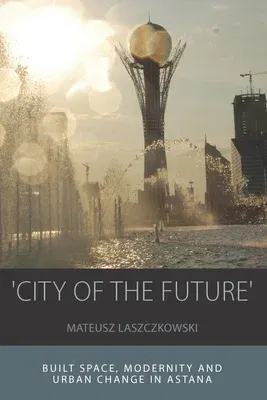Mateusz Laszczkowski
(Author)'City of the Future': Built Space, Modernity and Urban Change in AstanaPaperback, 7 October 2018

Qty
1
Turbo
Ships in 2 - 3 days
In Stock
Free Delivery
Cash on Delivery
15 Days
Free Returns
Secure Checkout

Part of Series
Integration and Conflict Studies
Print Length
220 pages
Language
English
Publisher
Berghahn Books
Date Published
7 Oct 2018
ISBN-10
178920075X
ISBN-13
9781789200751
Description
Product Details
Author:
Book Format:
Paperback
Country of Origin:
US
Date Published:
7 October 2018
Dimensions:
22.86 x
15.24 x
1.17 cm
ISBN-10:
178920075X
ISBN-13:
9781789200751
Language:
English
Location:
New York, NY
Pages:
220
Publisher:
Weight:
299.37 gm